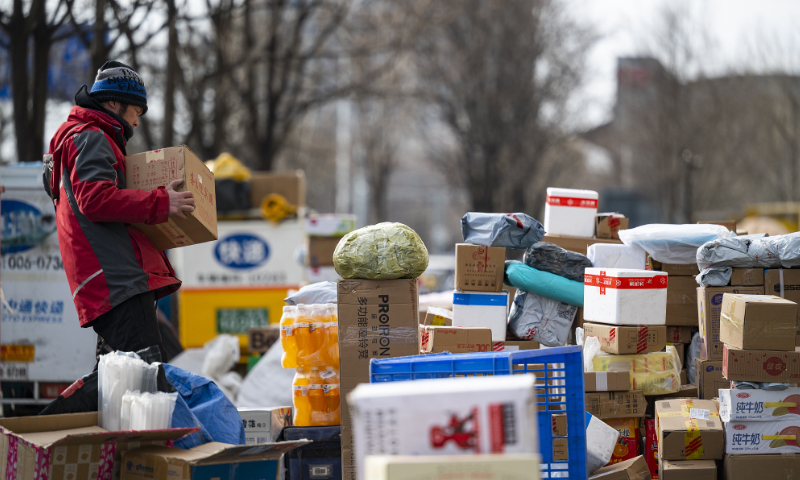China's State Council calls for improved logistics to safeguard delivery of epidemic prevention supplies

A deliveryman is delivering packages to residents in a community in Chaoyang district, Beijing on December 15, 2022. Photo: VCG
The State Council, China's cabinet, on Thursday called for efforts to improve logistics and safeguard the delivery of epidemic prevention supplies after the country eased anti-virus restrictions.
Efforts should be made to solve the backlog of mail and smoothen the distribution for medicines, epidemic prevention supplies and daily necessities, according to a notice issued by the logistics protection work group under the State Council on Thursday.
The notice encouraged delivery companies to issue allowances and overtime pay to couriers to extend their distribution time and range.
Emergency plans should be improved, and reserves of postal delivery personnel and materials should be strengthened to ensure that delivery services are uninterrupted, according to the notice.
In recent days, domestic express delivery companies have been gradually resuming business following the optimizing of epidemic control measures, especially in areas where the COVID-19 outbreaks have been relatively severe.
According to a report by Beijing Daily on Thursday, all of the sites and transfer centers of domestic express giant SF Express that have been affected by the coronavirus situation in Beijing have resumed operation.
The company has opened a special "fast track" to deliver urgent packages such as medicine.
STO Express, another domestic delivery company, also rolled out measures to guarantee delivery of products in Beijing. The company is expected to resume the normal operation of grassroots outlets in Beijing on Thursday.
As of Wednesday, the company had more than 4,700 employees in Beijing, of which nearly 3,500 were on the front line, according to media reports.
China is seeing a surge in delivery orders. The cold weather conditions and pandemic flareups may cause some delays, the State Post Bureau (SPB) warned.
China's parcel collection volume between December 1 and 12 surpassed 4.3 billion items, up 5.6 percent year-on-year, according to the SPB.
Global Times
